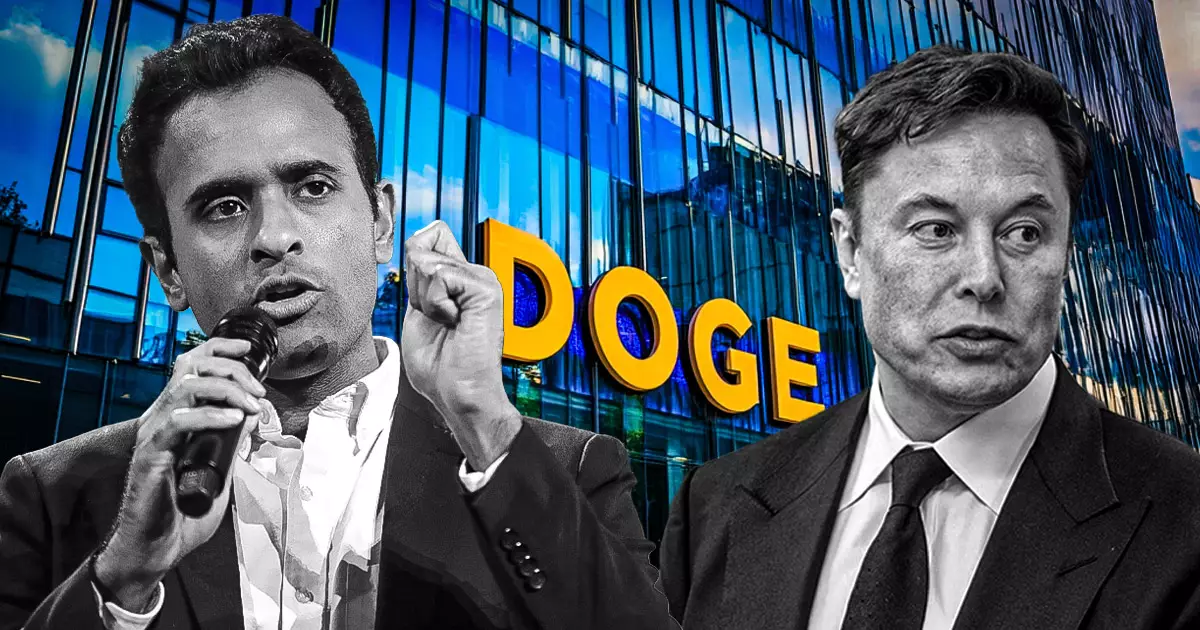In an audacious move, President-elect Donald Trump has unveiled a new venture called the Department of Government Efficiency, or DOGE, which will be spearheaded by influential figures in the tech and political arenas, Elon Musk and Vivek Ramaswamy. This initiative, aimed at addressing rampant government inefficiencies, seeks to significantly streamline federal operations and cut back on excess regulations and spending. Announced on November 13 via Trump’s Truth Social platform, the initiative has drawn parallels to the Manhattan Project, signaling a commitment to tackling inefficiency with the urgency of wartime innovation.
Central to DOGE’s mission is the ambition to reduce the “waste and fraud” present in the staggering $6.5 trillion federal budget. Trump envisions a more effective government by July 4, 2026, coinciding with the 250th anniversary of the Declaration of Independence. The initiative is designed to function autonomously, yet it will closely collaborate with both the White House and the Office of Management and Budget to enact sweeping structural reforms that promise to reshape the federal landscape.
Musk and Ramaswamy, both known for their support of Trump and advocacy for cryptocurrency, bring a fresh outlook to the challenges facing government efficiency. Musk’s involvement in the initiative is particularly intriguing given his previous public support for Trump’s campaign, while Ramaswamy’s endorsement comes after his own run for the presidency. Their shared interest in reform underscores a promise of innovative approaches that align with contemporary technological advancements, particularly in the realm of cryptocurrency.
Musk has emphasized transparency as a key pillar of the DOGE initiative, committing to regularly share updates online for public scrutiny and feedback. His approach proposes to engage citizens actively, creating mechanisms for them to voice concerns about governmental expenditures. By establishing a leaderboard that highlights the most wasteful government expenses, he seeks to create both awareness and accountability. Ramaswamy echoes this participatory sentiment, advocating for citizen input on matters of fiscal responsibility, stating that the electorate deserves a hands-on role in reform efforts.
The nomenclature of the department—DOGE—has sparked excitement among Dogecoin enthusiasts, resonating deeply within the meme culture that has come to define the cryptocurrency market. However, despite the initial hype surrounding Trump’s announcement, Dogecoin’s market price saw a drop of 10%. Market analysts are speculating on the long-term implications of Musk’s involvement with DOGE, although there are hopes that it may foster a resurgence as the crypto market enters a bullish phase.
With the establishment of DOGE, the ambition is clear: to invigorate government efficiency while harnessing the power of public engagement and innovative thinking. The collaboration between notable figures like Musk and Ramaswamy represents a blend of technology and policy that could lead to meaningful reform. However, the question remains whether this initiative will rise to the occasion and bring the promised transformation or simply become another layer of bureaucracy in an already complex federal system. As promising as these developments may be, the success of DOGE will ultimately depend on its ability to deliver tangible results for the American public.



















Leave a Reply